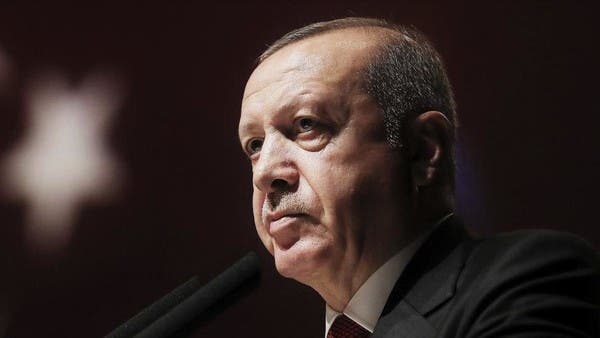Aqeel: The Turkish regime used the coup attempt as an excuse to abuse its opponents
Sharif Abdul Hamid: Erdogan's violations are not limited to the Turkish interior only
Today, four years pass by what the government of Turkish President Recep Tayyip Erdogan calls a failed coup attempt, and the opposition considers it an order orchestrated by the ruling party, which took place on the fifteenth of July 2016, and on this occasion the Maat Foundation for Peace, Development and Human Rights issues a report entitled “Status of Rights Human rights in Turkey ... a curved decline that reaches the edge of a precipice, ”covering the period from January to June 2020, in order to monitor and analyze the human rights situation in Turkey, including incidents of torture, trials of journalists, imprisonment of human rights defenders and opinion activists, mass arrests of citizens, violations against minorities and attacks on peaceful marches And interference in foreign countries, domestic violence against women, violation of academic freedoms, restrictions on Internet freedom and failure to observe workers' rights.
The report emphasized that the human rights situation in Turkey declined significantly during the first half of 2020, as the Turkish authorities carried out large-scale arrests that included the arrest and dismissal of thousands without any legal basis, as well as arrested and detained thousands of Turks for false reasons among the peaceful opponents. And political prisoners simply because of their differences of opinion with some representatives of the ruling party, as human rights activists and dissidents in prisons and detention centers are also routinely subjected to torture and other forms of brutal treatment, in light of the immunity from accountability enjoyed by members of the security services, and the opinion of the report or attempt The coup provided legitimacy for members of the security services in Turkey to practice widespread human rights violations, including torture and ill-treatment, without specific mechanisms of accountability and legal prosecution.
The report indicated that the number of prisoners in Turkey reached about 300 thousand prisoners, including the TP1T1T for political reasons, and their charges related to supporting terrorism and extremism, and the number of those accused of participating in the attempted coup has so far reached about 50 thousand people, including former military personnel, civilians, journalists and other groups of opposition groups. According to the policies of the Turkish government, 4,634 judges and public prosecutors have been dismissed, 24,419 police officers have been dismissed from the General Security Service, 16,409 military students have been dismissed from the war academies, in addition to 5,210 governors and administrators, with the exclusion of 6,168 employees from the Ministry of Justice.
The report stated that Turkey ranks 154 out of 180 countries in the World Press Freedom Index for 2020, and the Turkish authorities have issued decisions to close 53 newspapers, 34 TV channels, 37 radio stations, 20 magazines, 6 news agencies, and 29 publishing houses. Banned many news sites that do digital broadcasts over the Internet. There are at least 103 journalists and media workers behind Turkish prisons, either in pretrial detention or serving a sentence.
Ayman Aqil, head of Maat Foundation, stated that the Turkish regime used the coup attempt as a pretext to commit many human rights violations, as thousands of peaceful government critics and opponents, including journalists, former parliamentarians, academics, lawyers, and human rights and democracy activists were detained and imprisoned. Some of them were subjected to enforced disappearance, and were held incommunicado for months in unknown locations, without any legal justification, and were charged with vague charges.
Aqil added that the Turkish government has worked to weaken the role of the judiciary and has systematically employed the terrorism law to legitimize the ongoing campaign to silence and eradicate independent civil society and confront journalists and political parties with brutal and widespread violations of human rights. The emergency law was used extensively to justify the widespread campaign to silence all voices of dissent. Aqil stressed that the Erdogan regime used the coup attempt as an excuse for failing to improve the poor and deadly conditions of detention in Turkey, where torture, degrading treatment, medical negligence and inhuman conditions led to the death of many detainees in prisons.
For his part, Sherif Abdel Hamid, Director of the Research and Studies Unit at the Maat Foundation, said that since the coup attempt, academics, journalists, and writers have faced referrals to criminal investigation, judicial prosecutions, and various forms of intimidation, harassment and constant censorship. Violations also include restricting public freedoms and issuing laws that restrict freedom of opinion and expression, in addition to blocking websites, which contravenes international norms and covenants, especially Article 19 of the International Covenant on Civil and Political Rights.
Abdul Hamid added that the Turkish violations of human rights protection standards are not limited to the interior only, but also extended to other countries, especially after the Turkish authorities launched many military operations outside their territories to achieve political, military and economic goals, at the expense of the rights and body parts of the citizens of these countries. Research that Turkey has interfered in Syria, Libya and Iraq, and committed the most heinous crimes in these countries, which amount to war crimes and crimes against humanity. This is in violation of United Nations Resolution No. 36/103, which stipulates that interference of all kinds is not permissible in the internal affairs of states, and in contravention of Article Two, Paragraph Seven of the United Nations Charter, which provides for non-interference in the affairs of states of any kind.
shortlink: https://maatpeace.org/en/?p=26543












